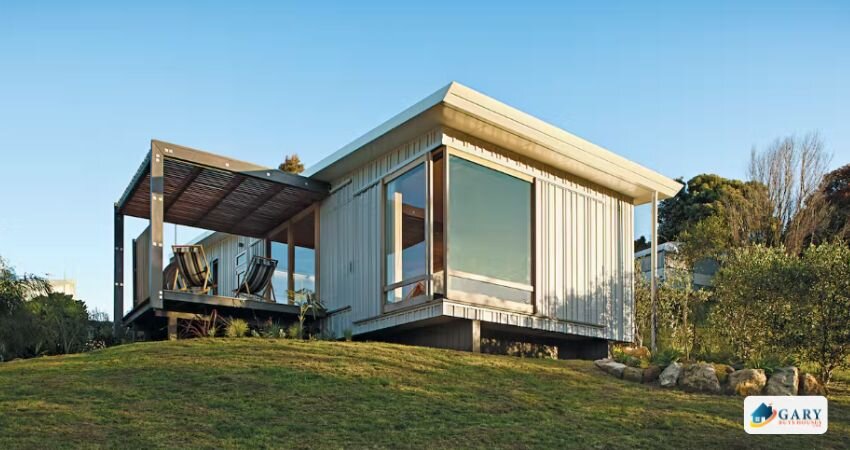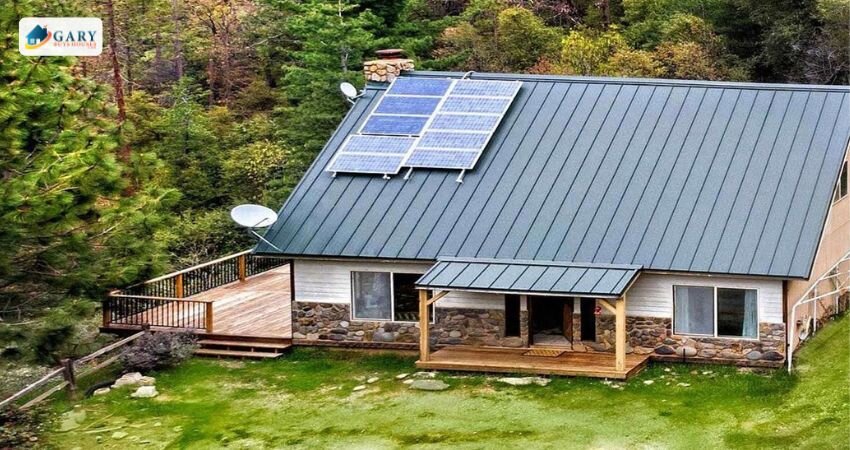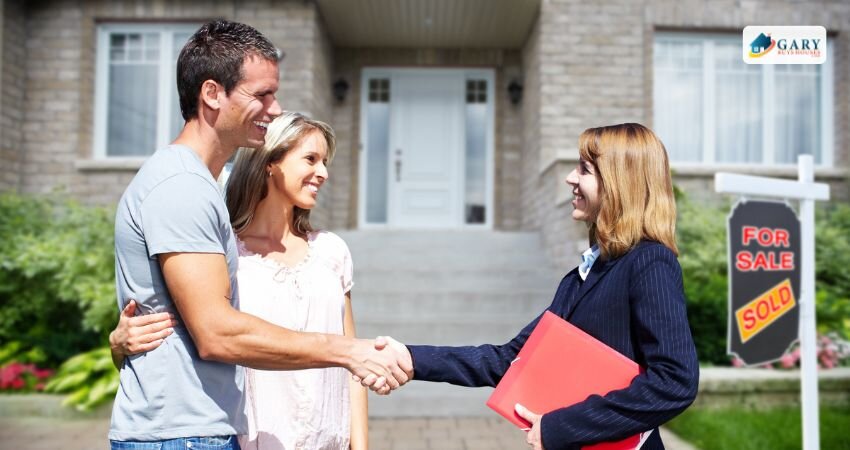You’ve heard about the trend of homes that are “off the grid” and how it’s risen in popularity. Maybe you’ve looked into it a little bit, feeding your curiosity. Maybe you’re on the more serious side about it and actually want to go “off grid” yourself.
Whether you’re here to to learn more or you’re ready to change your lifestyle, this guide to building an off grid home can answer all your questions.
What is an “off grid” house?

An off grid house is a house that is off of the power grid.
It’s typically away from the city and it’s not connected to any city owned utilities, such as electricity or water. Often these homes are more sustainable and use renewable energy for power.
Many times an “off grid” lifestyle is associated with people who want to take a step back from modern living and technology. Those people often are regarded as living a “Little House on the Prairie” lifestyle. They are environmentalists, they homeschool their kids, they raise livestock, grow their own food, spend all day doing chores, live miles away from the nearest town, etc., but that is not a completely correct stereotype.
There are many modern versions of an off grid home and not everyone who lives in an off grid house adopts the homesteading lifestyle.
Living off grid just means that you’re not being connected to utilities.
According to a recent estimate over 250,000 people in the USA have switched to living in an off grid home.
How do off grid houses work?
If 250,000 homes are off the grid- how do they even work? What do they do for utilities?
If you own an off grid home, your utilities don’t come from the city or government. You aren’t going to have any town water, gas, electricity, or sewage. Instead you’ll have to turn to alternatives. Some ideas for those alternatives include:
For electricity: solar panels or wind power
For water: collecting rain water, digging a well, or a cistern
For sewage: a septic tank
Some people though go partially off grid by supplying their own electricity but still use city water and septic, or vice versa.
Why live off the grid?

Why do people choose to live off the grid? Well, there are a few reasons.
One reason is people are sick of getting the seemingly endless stream of utility bills. The initial switch to an off grid system, and its upkeep over the years can be a bit costly, but you get to say goodbye to the monthly electric bill, water bill, and more.
As well as no power bills, you don’t have to be bothered by sudden city power outages, or a climb in utility bill prices.
Another reason people choose the off grid lifestyle may be because they want to limit their carbon footprint. Supplying your own utilities is better for the environment, especially if you are using renewable energy sources, like solar panels or wind power.
This off-the-grid lifestyle is more self reliant on your part. You are the one supplying the utilities. This can be a very empowering lifestyle.
There can be many reasons to choose to live in an off grid home, but also many reasons to choose not to. Let’s look at some of the pros and cons to an off grid lifestyle.
Pros and cons to living off the grid
| PROS | CONS |
| Cost Savings in Utilities in the Long Term | Upfront Cost to Set up Energy Sources |
| Live anywhere, more freedom, great flexibility | Ongoing Maintenance Costs and Time |
| Great for the environment-world-air quality | Power can be limited depending on your systems |
We’ll start with the costs. “Cost” is listed under both the for and against category. Initially the set up to an off grid system can be expensive.
In an article by Forbes, the average solar panels cost $16,000, and that would increase depending on the size of your house or on how much power you will use. Then there’s water, gas, sewage, back up generators, and more to fit in to the budget.
The cost can be doable, and can be able to save you money in the long term, but the initial investment may be on the more expensive side.
The other two points on the “pro” side are more freedom, and being great for the environment. We already briefly mentioned that an off grid life can be better for the environment, but it can increase your freedom as well. You can live anywhere off the grid- you don’t have to rely on the power grid. If problems come up with your utilities, you don’t have to wait for overburdened city workers to fix it either. You can just solve it yourself any time.
On the other hand, that point, it being all on you, can be considered on the “con” side. Because you are living off the grid you are in charge when it comes to setting everything up. You either install things your self, or hire others to do it. Where there’s greater responsibility and freedom there’s usually more work on your part.
If something breaks or needs maintenance, that is on you. If the septic tank gets backed up, or stops working, or if you have electricity problems etc., you are the one to deal with it. That might be just fine but it’s something to keep in mind.
The final point on the con side is the potentially limited supply of power, or other utilities. Depending on how much power you can store, you may run in to limited power supply.
This is a potential con, but many people living off the grid need to watch how many appliances they are using at once, to not overkill the power. Having a backup generator may be a smart idea.
How to get an off grid house

There are three ways to get an off grid house. They are:
- Buy an already existing off grid home
- Convert your home into an off grid one
- Buy land and build an off grid home of your choice
All of these options can be great. If you want to sell your house or property for any reason in any condition let’s talk. Gary can give you a cash offer on your home (in whatever condition it’s in) that you can use to start the process of living the off grid lifestyle if that’s your desire.
